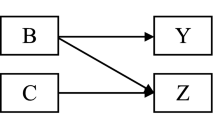Abstract
The present study is part of acomprehensive research project with the generalaims of comparing how problem-based learning isrealised in three different professionaleducational programmes. The specific aims ofthis study are to describe and analyse howstudents in the three different programmesconceive of the meaning of problem-basedlearning and how they experience their studieswithin a problem-based learning programme. ThePBL programmes are a Bachelor's programme inPhysiotherapy, a Master's programme inPsychology, and a Master's programme inComputer Engineering. Data were analysedqualitatively. The results reveal differencesin how the students in the three programmesconceive of their autonomy as learners,co-operation with their counterparts and theauthenticity of the learning task. The findingspossibly also reflect the taken-for-grantedperspectives of knowledge, embedded in thecultures of the professional practices and thescientific disciplines to which the programmespertain.
Similar content being viewed by others
References
Abrandt, M. (1997). Learning Physiotherapy: The Impact of Formal Education and Professional Experience. Linköping Studies in Education and Psychology No. 50.
Abrandt Dahlgren, M. (2000). Portraits of PBL: Course Objectives and Students' Study Strategies in Computer Engineering, Psychology and Physiotherapy. Instructional Science 28: 309–329.
Abrandt Dahlgren, M. Portraits of PBL: (submitted) The Differential Impact of Assessment on Students' Approaches to Learning in Computer Engineering, Physiotherapy and Psychology.
Albanese, M.A. & Mitchell, S. (1993). Problem-Based Learning. A Review of Literature on its Outcomes and Implementation Issues. Academic Medicine 68: 52–81.
Barrows, H.S. & Tamblyn, R.M. (1980). Problem-Based Learning: An Approach to Medical Education. New York: Springer Publishing Company.
Barrows, H.S. (1985). How to Design a Problem-Based Curriculum for the Preclinical Years. New York: Springer Publishing Company.
Barrows, H.S. (1988). The Tutorial Process. Springfield, Illinois: Southern Illinois University School of Medicine.
Becher, T. (1989). Academic Tribes and Territories. Intellectual Enquiry and the Cultures of Disciplines. Buckingham: SRHE and Open University Press.
Boud, D. and Feletti, G., eds (1999). The Challenge Of Problem-Based Learning (2nd Edition). London: Kogan Page.
Dewey, J. (1933). How We Think: A Restatement of the Relation of Reflective Thinking to the Educative Process. Boston: D.C. Heath & Company.
Huberman, A.M. & Miles, M.B. (1994). Data management and analysis methods, in N.K. Denzin & Y.S. Lincoln, eds, Handbook of Qualitative Research, pp. 428–445. London: Sage.
Kekäle, J. (1997). Leadership Cultures in Academic Departments. Dissertation. Joensuu: Yliopisto.
Kjellgren, K., Ahlner, J., Dahlgren, L.O. & Haglund, L., eds (1993). Problembaserad inlärning – erfarenheter från Hälsouniversitetet [Problem-Based Learning – Experiences from the Faculty of Health Sciences] Lund: Studentlitteratur.
Knowles, M. (1975). Self-Directed Learning: A Guide for Learners and Teachers. New York, Cambridge: The Adult Education Company.
Kuhn, T. (1970). The Structure of Scientific Sevolutions., 2nd edn. Chicago: University of Chicago Press.
Lawler, J. (1998). Adapting a Phenomenological Philosophy to Research and Writing, in J. Higgs, ed., Writing Qualitative Research, pp. 47–55. Sydney: Hampden Press.
Margetson, D. (1998). What Counts as Problem Based Learning? Education for Health 11: 193–201.
McInnis, C. (1996). Academic Cultures and their Role in the Implementation of Government Policy, in J. Brennan, M. Kogan and U. Teichler, eds, Higher Education and Work (2nd ed.). Higher education policy series 23, pp. 99–118. London: Jessica Kingsley Publishers Ltd.
Norman, G.R. & Schmidt, H.G. (1992). The psychological basis of problem based learning: A review of the evidence. Academic Medicine 67: 557–565.
Ryan, G. (1993). Student perceptions about self-directed learning in a professional course implementing problem-based learning. Studies in Higher Education 18: 53–63.
Saarinen-Rahiika, H. & Binkley, J.M. (1998). Problem-based learning in physical therapy: A review of the literature and overview of the McMaster University experience. Physical Therapy 78: 195–207.
Savin-Baden, M. (1996). Problem-based learning: A catalyst for enabling and disabling disjunction prompting transitions in learner stances? Unpublished PhD thesis. University of London Institute of Education.
Savin-Baden, M. (2000). Problem-based Learning in Higher Education: Untold Stories. Buckingham: SRHE & Open University Press.
Schraw, G.(1998). Promoting general metacognitive awareness. Instructional Science 26: 113–125.
Silén, C. (1996). Ledsaga lärande – om handledarfunktionen i PBL. [Assisting learning – the tutor' role in problem based learning]. Linköping University, Department of Education and Psychology.
Silén, C. (2000). Mellan kaos och kosmos: om eget ansvar och självständighet i lärande. [Between chaos and cosmos: on responsibility and independence in learning] Linköping Studies in Education and Psychology No. 73.
Stiwne, D., Abrandt, M. & Holmqvist R. (1996). Psychological dilemmas of PBL. Learning from a full scale implementation of PBL in a MSc Psychology programme. Paper presented at 24th. NFPF-congressn' 96 in Lillehammer, Norway, 7–10 mars 1996.
Säljö, R. (1994). Minding Action. Conceiving of the World Versus Participating in Cultural Practices. Nordisk pedagogik 2: 71–80.
Säljö, R. (2000). Lärande i praktiken. Ett sociokulturellt perspektiv. [Learning in practice. A socio-cultural perspective] Stockholm: Prisma.
Zimmerman, B.J. (1990). Self-regulated learning and academic achievement: An overview. Educational Psychologist 25: 3–17.
Wenger, E. (1998). Communities of Practice. Cambridge: Cambridge University Press.
Author information
Authors and Affiliations
Corresponding author
Rights and permissions
About this article
Cite this article
Dahlgren, M.A., Dahlgren, L. Portraits of PBL: students' experiences of the characteristics of problem-based learning in physiotherapy, computer engineering and psychology. Instructional Science 30, 111–127 (2002). https://doi.org/10.1023/A:1014819418051
Issue Date:
DOI: https://doi.org/10.1023/A:1014819418051




